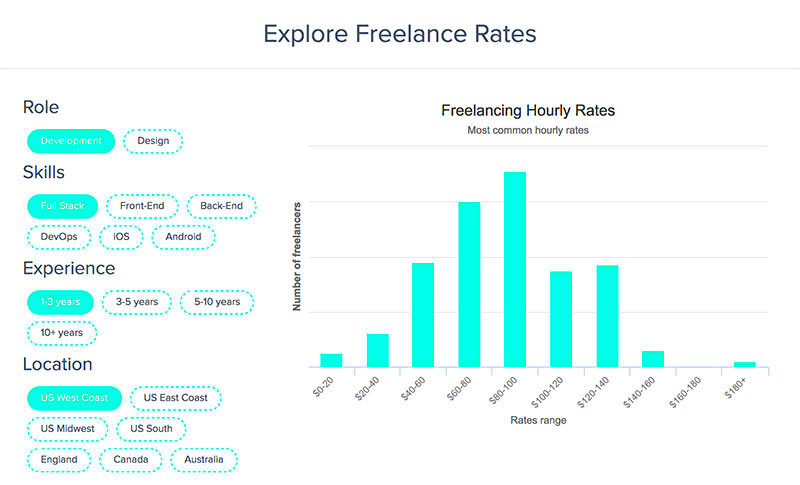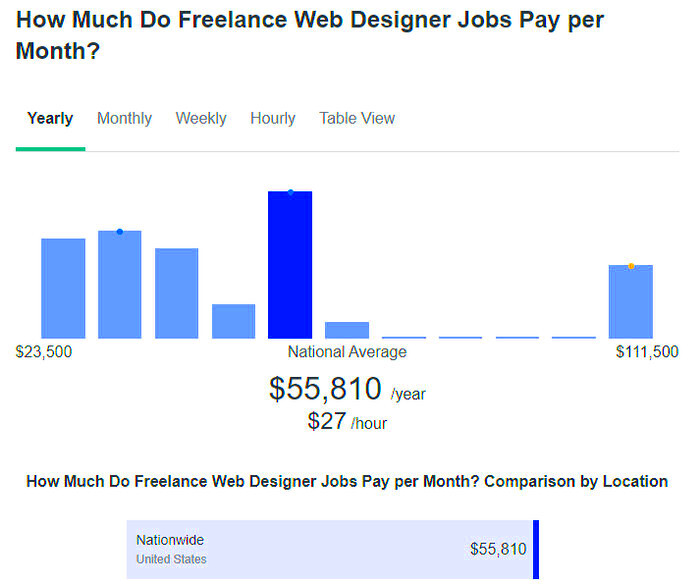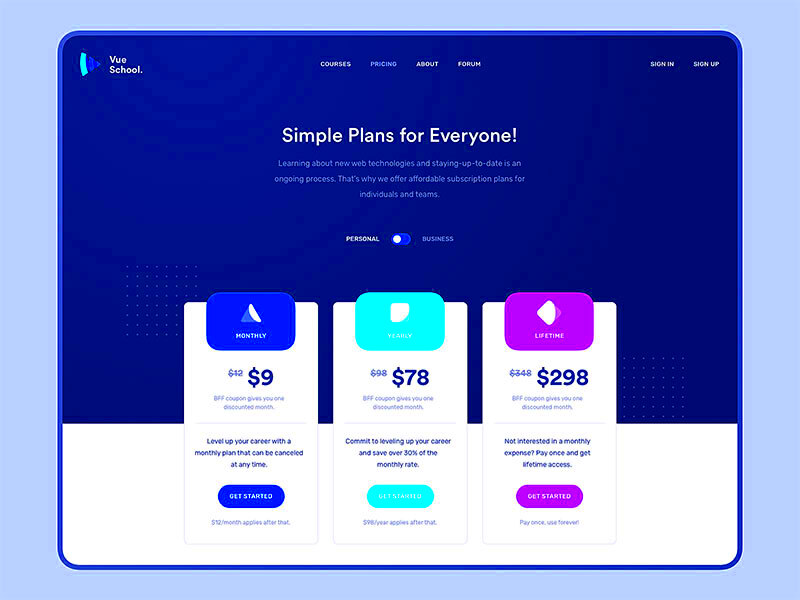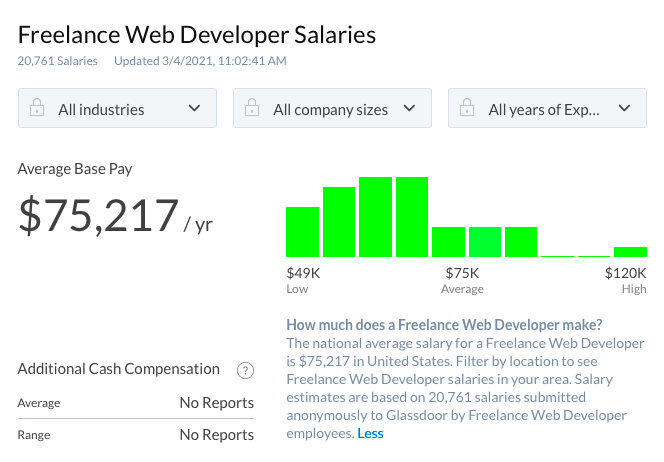Freelance web design is a growing career choice for creative professionals. It allows individuals to work independently, offering web design services to clients on various platforms like Fiverr, Upwork, and directly through their own websites. As a freelance web designer, you get to set your own schedule, choose your clients, and work on a variety of exciting projects. However, it also comes with its challenges, like finding clients, setting competitive rates, and managing your workload. In this post, we'll explore how freelance web designers charge for their services and what factors influence their pricing strategies.
Understanding the Charges of Freelance Web Designers

When it comes to freelance web design, the rates can vary greatly depending on several factors. Unlike traditional employees, freelancers set their own prices based on experience, skill level, and the complexity of the project. Some web designers charge hourly rates, while others prefer project-based pricing. As a freelancer, you must determine how much you want to earn and what you believe your services are worth.
The most common pricing models include:
- Hourly Rate: A flexible option where designers charge for the time they spend working on a project.
- Project-Based Pricing: A fixed price agreed upon at the start of the project.
- Retainer Fee: A set amount paid regularly for ongoing work, such as monthly updates.
It's essential to research the market and see what other designers are charging in order to stay competitive while ensuring you earn a fair income for your expertise and effort.
Also Read This: How Much Freelance Software Developers Typically Make
Factors that Influence Freelance Web Designer Charges

Several factors play a role in determining the charges of freelance web designers. Understanding these elements can help you set appropriate rates for your services and avoid undercharging or overpricing. Here are some of the key factors:
- Experience: Designers with more years in the industry can command higher rates due to their extensive knowledge and skillset.
- Skillset: Specialized skills like UX/UI design, e-commerce integration, or custom coding can increase your rate, as clients often value niche expertise.
- Project Complexity: Complex websites with advanced features, such as custom databases or interactive elements, will require more time and effort, leading to higher charges.
- Client Type: Large businesses or well-funded startups may have a bigger budget than small local businesses or individuals, which can influence your rates.
- Location: Geographic location can affect pricing, as living costs in different regions can play a role in determining your rates. A web designer in a city with a higher cost of living may charge more than one in a smaller town.
- Portfolio: A strong portfolio with high-quality work can help you justify your pricing and attract clients who are willing to pay for top-notch designs.
By considering these factors, you can develop a pricing strategy that reflects your skills, experience, and the demands of your clients.
Also Read This: How to Attract Clients on Fiverr
How Freelance Web Designers Earn Money

Freelance web designers earn money by offering a variety of services to clients, from creating websites to providing ongoing maintenance and updates. Their income depends on the types of projects they take on and the pricing model they choose. Whether working with small businesses, startups, or large corporations, web designers can build multiple income streams.
Here are some common ways freelance web designers make money:
- Design Projects: Many freelance designers earn a significant portion of their income by creating new websites for clients. This includes designing the layout, coding the site, and making sure it functions smoothly.
- Redesigns and Updates: Some clients need redesigns or regular updates to their existing websites, which can be a continuous source of income for freelancers.
- Maintenance and Support: Ongoing maintenance services like bug fixes, security updates, and performance optimization are essential for clients who want their sites to stay up-to-date. Freelancers often charge monthly or hourly for these services.
- E-commerce and Special Features: Web designers may also earn by adding advanced features to websites, such as e-commerce functionality, custom databases, or integration with third-party apps and services.
- Consulting and Strategy: In addition to design work, some web designers earn money by offering consulting services, where they provide guidance on website structure, content strategy, or SEO.
By diversifying their offerings, freelance web designers can increase their income and build long-term relationships with clients who need ongoing support and expertise.
Also Read This: Is Fiverr Affiliate Good for Freelancers?
Common Pricing Models for Web Design Services

Freelance web designers use different pricing models depending on the type of project, client needs, and the amount of time they expect to invest. The pricing model you choose can significantly impact your earnings and the way you work with clients. Let's explore the most common pricing models:
| Pricing Model | Description |
|---|---|
| Hourly Rate | The designer charges a set hourly rate for the time spent working on the project. This model is flexible and works well for ongoing tasks or smaller projects. |
| Flat Project Fee | A fixed price agreed upon at the start of the project. The designer sets the price based on the project scope and estimated time commitment. This is common for one-time projects like creating a new website. |
| Retainer Fee | The client pays a regular fee (usually monthly) for continuous access to the designer’s services. This is ideal for long-term relationships where the designer provides ongoing maintenance or updates. |
| Value-Based Pricing | The price is based on the perceived value of the project rather than the time spent. Designers with significant expertise may use this pricing model when working on high-impact, high-value projects. |
Choosing the right pricing model depends on your skills, the complexity of the project, and your relationship with the client. For example, hourly rates may work best for smaller projects, while flat fees or retainers could be more beneficial for larger, ongoing work.
Also Read This: How Can I Tell If Someone is Online on Fiverr?
How to Set Your Freelance Web Design Rates
Setting the right rates as a freelance web designer is crucial to ensure you're compensated fairly for your time and skills. It can be challenging to determine the right price, but a few key steps can help you establish rates that reflect your experience and the value you provide.
Here are some tips to help you set your rates:
- Evaluate Your Skills: Take stock of your experience, portfolio, and the specific services you offer. The more experience you have, the higher you can charge for your services.
- Research the Market: Check out what other web designers in your region or niche are charging. This will give you an idea of industry standards and help you stay competitive.
- Consider Your Target Clients: Understand your clients’ budgets. Small businesses or startups might have tighter budgets than larger corporations, so adjust your rates accordingly.
- Decide on a Pricing Model: Based on the type of work you do and the length of your projects, choose a pricing model that suits both you and your clients (hourly, flat fee, or retainer).
- Account for Expenses: As a freelancer, you need to cover your own business expenses, such as software, hardware, insurance, and taxes. Make sure your rates reflect these costs.
- Start Small, Then Scale: If you're just starting out, you may want to offer slightly lower rates to attract clients and build your portfolio. As you gain experience, you can gradually increase your rates.
Remember, setting your rates is a balance. You want to be competitive, but also ensure you're being compensated fairly for your expertise and time.
Also Read This: Revealing Competitor PPC Costs: SpyFu Tactics
Challenges in Determining Web Design Charges
Setting the right price for web design services can be tricky, especially for freelancers just starting out. There are several factors that can make determining charges a challenge. Each client is different, and each project has its own set of requirements. Understanding how to balance fair compensation with market competition is key. Let’s look at some of the challenges freelance web designers face when it comes to pricing:
- Unclear Client Expectations: Sometimes, clients don’t clearly define what they want, making it difficult to estimate how much time and effort the project will require. This can result in undercharging or overcharging.
- Market Competition: Freelance designers often find themselves competing with others who may offer lower rates. While staying competitive is important, it’s essential not to undervalue your skills.
- Varying Project Complexity: Some projects are straightforward, while others require advanced features, like custom coding or e-commerce integration. Determining a fair price for complex projects can be difficult.
- Client Budget Variability: Clients come with different budgets, and it can be challenging to align your rates with what they are willing to pay. It’s important to find a balance between your pricing and the client’s expectations.
- Changing Client Needs: Throughout a project, clients may request changes or new features, leading to scope creep. Managing these requests while keeping your rates fair can be a challenge.
Freelance web designers must carefully consider these challenges when determining their rates. Clear communication, understanding the project scope, and regularly reviewing industry standards can help ensure fair pricing for both you and your clients.
Also Read This: How to Resolve “Can’t Open Old Message” Issue in Fiverr Feed
FAQ
1. How much should I charge as a freelance web designer?
The rate you charge depends on factors like your experience, skillset, and the complexity of the project. You can charge hourly, per project, or on a retainer basis. Research your market and determine what similar designers are charging to get a sense of competitive rates.
2. What are the most common pricing models for web design?
The most common pricing models include hourly rates, flat project fees, and retainers. Each model works best depending on the type and scope of the project. Hourly rates are great for ongoing work, while flat fees are ideal for one-time projects.
3. How do I negotiate with clients on pricing?
When negotiating, be clear about the services you offer and the value you bring. Ensure that both you and your client understand the project scope, timelines, and any potential additional costs for extra features or revisions.
4. What if a client requests more work than agreed upon?
It’s common for clients to request additional features during a project. Be sure to include a clause in your contract that outlines how changes or additional requests will affect the pricing and timeline. This helps you avoid scope creep.
Conclusion
Determining web design charges as a freelancer requires careful consideration of various factors, such as your skill level, project complexity, client budget, and the competitive landscape. The key is to find a balance that allows you to earn a fair income while providing value to your clients. By understanding common pricing models, setting appropriate rates, and navigating the challenges that come with freelancing, you can confidently charge for your web design services and build a successful freelance career.
Remember, communication is crucial in setting expectations with your clients. Be transparent about your rates, the scope of work, and how changes will affect the project. By doing this, you can ensure a smooth workflow and maintain healthy client relationships.




